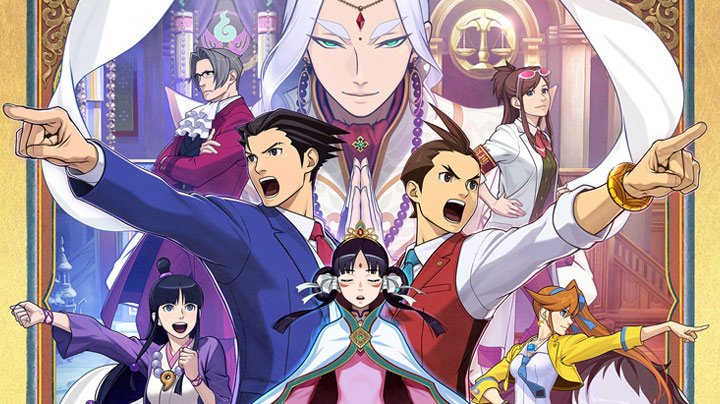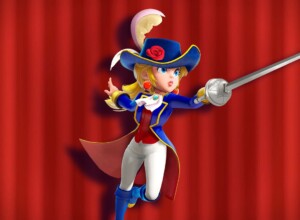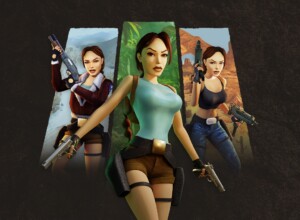This year the Ace Attorney series celebrated its 15th anniversary.
Whilst the series didn’t come to the West until a few years later (via remakes for the Nintendo DS) it has seen remarkable success given the niche subject matter and the general appetite for visual novel-esque games outside of Japan. Spirit of Justice is the sixth main entry in the Ace Attorney series, with a couple of spin-offs including Investigations, the Japan-only Dai Gyakuten Saiban (Great Turnabout Trial), and a crossover with Professor Layton. Although just to confuse matters a little further, Spirit of Justice is actually only the fifth game that puts the player into the shoes of Phoenix Wright.
With five previous games worth of story, this could have been a barrier for those new to the series. Wisely Capcom has altered the structure and setting for Spirit of Justice, making it easier to create a new scenario that satisfies both new and returning players. There are many returning characters from across all five previous games, but each one is carefully introduced so as to not bombard new players or to overly confuse the narrative. This also provides a steady stream of familiar faces for existing player to get reacquainted with.
The Ace Attorney games, for better or worse, have gone through some pretty drastic localisation. When the series first came to the West in 2005/6 it was understandable as to why Capcom made the decision to change the setting from Japan to the United States. Given the sheer amount of direct references to Japanese culture, combined with some unusual spiritual aspects, the games could have proved overwhelming for most Western players. But over successive entries, the Japanese elements have been given more acknowledgement and their context within the Western setting made clearer, perhaps helped by a greater familiarity with Japanese culture. The result is akin to Big Hero Six’s Western-Asian hybrid San Fransokyo – though in Phoenix’s world, it’s supposed to be Los Angeles – which does help to explain the presence of Kurain Village, and the act of Spirit Channelling that has been central to first three games.
Spirit of Justice starts by moving the series far away (or for the Japanese version, just to the mainland) to the deeply religious monarchical nation state of Khura’in, located on the edge of the Himalayas. This nation still worships its founder – the Holy Mother who brought the art of Spirit Channelling with her from Japan – whose descendants still rule and are the only ones who retain the ability (aside from those of the Fey clan of Kurain Village, which was also founded by the Holy Mother).
It is this connection that brings Maya Fey to Khura’in, to complete her two years of ascetic training necessary to perfect the Spirit Channelling ability, required for her to become the master of Kurain Village. Nearing the end of her training, long-time friend and associate Phoenix Wright makes the long journey to visit her for what is supposed to be a momentous event, only to quickly find himself embroiled in a local predicament. Wright experiences first-hand what happens to a society where the right to a defence in the eyes of the law is not straight-forward.

Technically the accused do still have the right to a defence attorney, but a law known as the Defence Culpability (DC) Act that was enacted 23 years ago states that if the accused is found guilty, then anyone who defends or aids them will also receive the same punishment. Given the death penalty is widely used in Khura’in (mirroring both the US and Japan, who also retain capital punishment) this makes mounting a defence a highly unappealing prospect. To make matters worse, the Khura’inese court system also utilises what is known as the Divination Séance, a Minority Report-esque ritual carried out by the Princess where a Pool of Souls displays the victim’s final memories before their death. The combination of the DC Act and the Divination Séance has seen all trials resulting in guilty verdicts for the past 23 years, with most defence attorneys having been incarcerated, executed, or in exile as a result.
When Wright’s newly acquainted guide, Ahlbi Ur’gaid – yes, his name is a pun, and just the first of many – is accused of theft and murder, Wright takes it upon himself to provide Ahlbi with a defence, undeterred by the DC Act. By highlighting contradictions in the Divination Séance Wright is able to turn the trial around, and in doing so learns of the rebel group known as the Defiant Dragons who are working to bring about a revolution to rid Khura’in of its current unjust legal system.

Spirit of Justice doesn’t solely take place in Khura’in however; the game goes international, switching back and forwards between there and Los Tokgeles – sorry, Los Angeles – which will be much more familiar to returning players, especially those who have played the previous 3DS title Dual Destinies. The episodes that take place at “home” are for the most part disjointed from the events occurring in Khura’in, but characters do flit between the two locations, and will remark on what has happened in the other, retaining a coherent world. This also allows the episodes to focus on their own stories, with the “home” episodes being more self-contained, allowing for more creative freedom to have fun with a singular narrative. This is especially evident with the episode that sees the return of Simon Blackquill, and encapsulates what is possibly the most Japanese case of the series so far – at least as has been provided in the Western versions – in which the player learns about the intricacies of noodle making, and gains an insight into the art of rakugo storytelling.

Apollo Justice also makes a return, once again at the players’ control, and this time plays a bigger role than in Dual Destinies, without being overshadowed by Phoenix Wright. Even for those unfamiliar with Apollo’s background there are plenty of new revelations making him the more intriguing character. But with all the characters learning new things, be it about Khura’in or about other characters past, the player is able to learn with them, without the characters seeming unnaturally ignorant for the sake of the narrative.
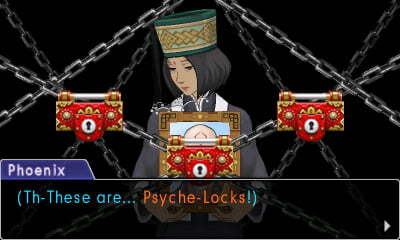
As this is the sixth entry in the main series, the number of different mechanics has grown with the series. Whilst none are too complex – the most being the new Divination Séance – Spirit of Justice makes use of just about every previous mechanic. It is still nice to see the return of Psyche-Locks, but this is only used a couple of times, and the highly touted new Divination Séance is actually used quite sparingly. Apollo’s bracelet that informs him when someone is hiding something also returns, but is possibly the most frustrating of all, only serving to provide Apollo with a “special power” of his own. Touchscreen and microphone elements make a return during the investigations, and when examining some pieces of evidence whilst in court, but aren’t as gimmicky as they might be. If for whatever reason you don’t want to use the touchscreen or – more understandably – don’t want to blow into the microphone to remove excess dust from dusting for fingerprints, then the various buttons on the 3DS can be used instead.

The problem with having a number of different mechanics is that the better ones don’t get a chance to make a greater impact, whilst the more frustrating ones stand out for the wrong reasons. When an existing mechanic is introduced one of the characters will offer to give the players character an explanation as to how it works. This is essential for new players and existing players may find a refresher helpful, but it is good not to have to force player’s familiar with the mechanics to sit through a tutorial that is unnecessary for them.
The new setting of Khura’in changes the dynamic of the series and puts Phoenix Wright on the defensive. This might sound bizarre given that he is a defence attorney, but the DC Act introduces a tangible threat to Wright, as his life is literally on the line (which the game has the good humour of reminding him). This personal threat only represents a portion of the stakes, set against the background of the disenfranchised rebelling against the corrupted elite. This theme permeates the episodes that take place in Kura’in (these episodes also tie more directly to one another unlike the main “home” episodes), but it can also be felt in the “home” episodes as well. This provided one of the most engaging overall narratives of the series. There was still plenty of mystery, intrigue and the famous turnabouts, but it also created a feeling of unjust oppression that can afflict people all around the world. Even though the game is set in 2028 (not that you could tell by playing it) the issues seemed very pertinent to the state of affairs today. Corrupt politicians trying to get into seats of power, ministers abusing their power, and the courts failing the people they are meant to serve.

Whether this was intended or not (in the original or via localisation) the more time you spend with the inhabitants of Khura’in, the greater a sense of suffocating authoritarianism is felt: the suppression of people’s freedoms justified via the argument of maintaining peace; people seemingly guilty until proven innocent (which won’t change without a defence). And with mass executions taking place, people are understandably afraid to to speak/act against their government, bringing to mind a line from V for Vendetta: “People shouldn’t be afraid of their government. Governments should be afraid of the people.”
The Ace Attorney series has always had its dark moments – after all it centres on murder – but the overall tone has always remained broadly positive. Even though the same can be said with Spirit of Justice, this darker tone is more evident and gives greater credence to what Wright & Co and the Defiant Dragons are trying to achieve. When someone in a position of power talks of “re-education” – which others in the game refer to as torture – something has gone wrong, yet the game also doesn’t fall into the default stance of positing democracy as the answer.
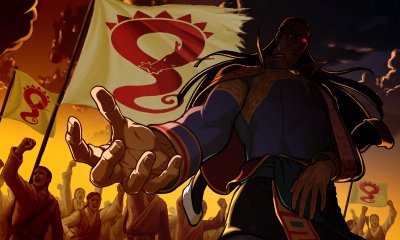
Immigration is also explored, with the nation bearing anxiety towards immigrants, critical that people are trying to take advantage of their spiritual ways to benefit their lives without benefitting Khura’in. Foreigners, in general, are viewed with hostility, due in part to their ignorance of Khura’inese spiritual ways; oblivious to the irony that Spirit Channelling was introduced by a foreigner. Meanwhile, Wright isn’t posited as the solution to all of the problems in Khura’in, going against the trope of the “Westerner” telling the people of the land what they should do. This gives thought as to the debate between religion/tradition vs. science progress. Suspicion of foreigners and an adherence to old ways is holding the country back and is allowing it to be exploited by its rulers. Conversely modernity isn’t something that can be imported wholesale and improve the situation. The solution has to be considerate to the nation’s culture and its people. Although being Ace Attorney the role of the courts of justice unsurprisingly plays a crucial role.

Spirit of Justice subverts the structure of previous entries, no longer strictly adhering to the three-day trial system interwoven with investigations. Some episodes don’t even feature an on-scene investigation, instead solely relying on evidence presented during the trial. Each episode is structured in a way that relates to story it is telling, and its length matches this as well. Without the familiarity of the strict structure, episodes don’t feel as tedious as some have felt in the past, despite the fact that many take just as long (if not longer) to go through. The final episode is a mammoth for the series, but also one of the most rewarding. Not much more can be said about it without spoiling the episode, but it brings the whole game together in what is a special and memorable experience.
Phoenix Wright: Ace Attorney – Spirit of Justice manages to succeed in the difficult task of both moving forward, yet still retaining all the elements that have defined it so far. The way it goes about this might be too jarring for some returning players, or too overwhelming for new players, but the route it has taken was the most accessible without taking a drastic reboot (or doing something along the lines of Ace Attorney: Apollo Justice).
